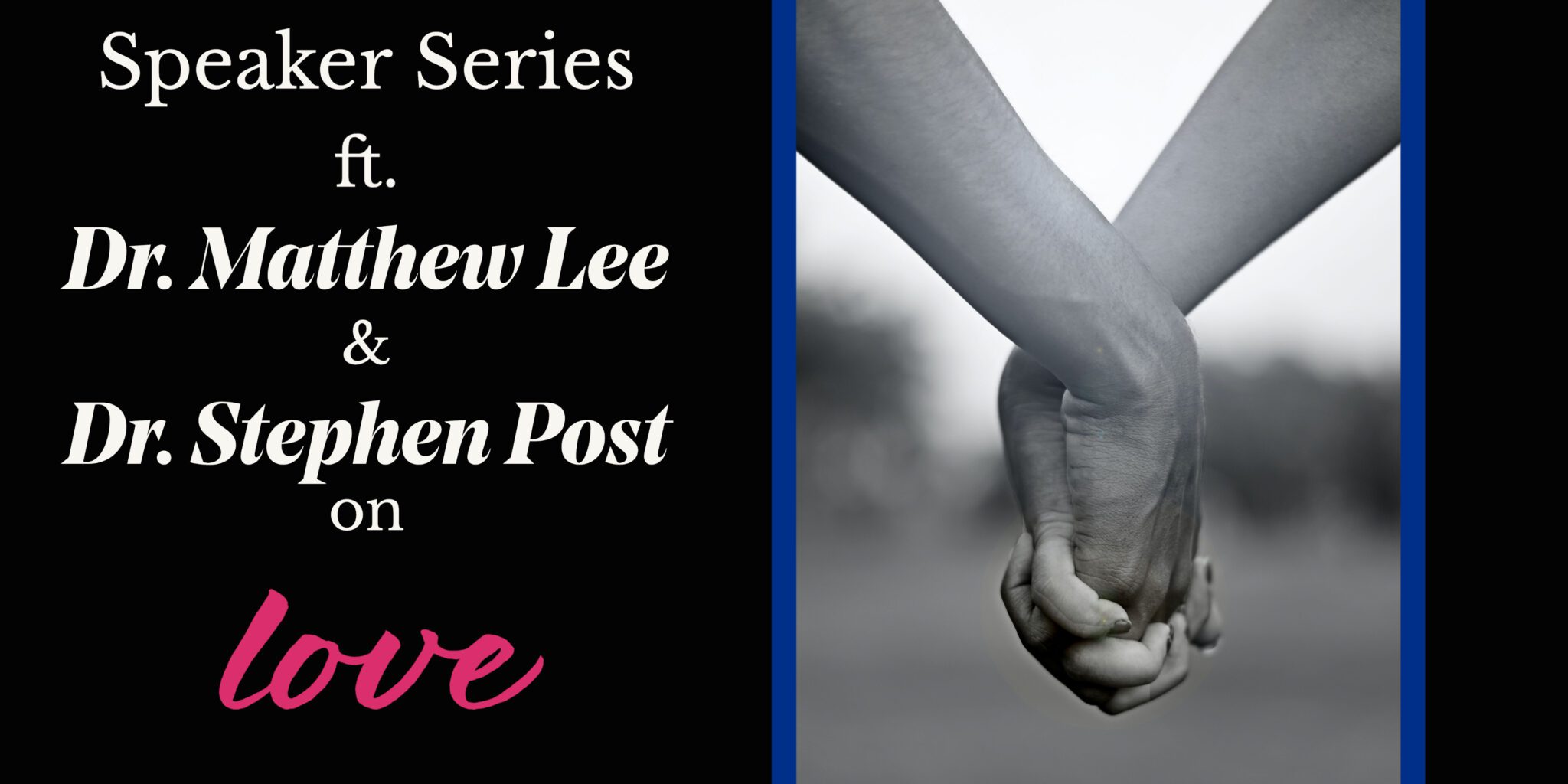“Would you just take, along with me, one minute to think of all the people who have loved you into being?”
This quote was originally delivered by Tom Hanks, playing the character of Mr. Rogers in the 2019 film A Beautiful Day in the Neighborhood. It was also posed during a recent lecture given to a room full of John Templeton Foundation staff members.
As I pondered this question along with my colleagues, I found myself wondering what ‘love’ truly means. What does it mean to love someone into being? What do humans really know about love? Both Dr. Matthew Lee and Dr. Stephen Post have studied love extensively, and on February 28th, they joined staff at the Foundation’s offices to present a snapshot of their Foundation-funded research on love.
The first half of this session focused on the Foundation’s initial investments in love research to the Institute for Research on Unlimited Love (IRUL). IRUL began in 2001 with a grant from the John Templeton Foundation. Dr. Stephen Post, the President of IRUL for the past two decades, discussed Sir John’s interest in love, the creation of IRUL, and the key work that IRUL has done over the past twenty years. During the second half of the session, Dr. Matthew Lee, the Director of the Flourishing Network at the Human Flourishing Program at Harvard University, discussed the Human Flourishing Program’s current efforts to understand and assess interpersonal love within seven distinct relationship types. Session participants walked away with a deeper appreciation for the diversity of approaches for researching love.
Watch the full video here:
